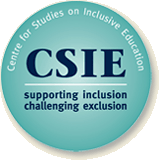
supporting inclusion, challenging exclusion
International Covenant on Economic, Social and Cultural Rights
in a nutshell
The Covenant (1966, in force 1976) covers economic, social and cultural rights. Article 2 states that these rights should be enjoyed without discrimination; articles 13 and 14 assert the right to education.
Implementation of the Convention
Implementation of the Covenant is monitored by the Committee on Economic, Social and Cultural Rights. Each state that has ratified the Convention periodically prepares reports on its implementation which are submitted to the Committee. Non-governmental organisations (NGOs) may submit ‘alternative’ reports to the Committee. The Committee considers the reports and examines government delegations from the states concerned at one of its three sessions per year, and prepares its concluding observations and recommendations for further action.
View the concluding observations of the UN Committee on the Economic, Social and Cultural Rights (extracts concerning inclusive education 2004-2009):
The right to education without discrimination is enshrined in articles 13 and 14 of the Covenant. Article 13 states:
‘(1) The States Parties to the present Covenant recognize the right of everyone to education. They agree that education shall be directed to the full development of the human personality and the sense of its dignity, and shall strengthen the respect for human rights and fundamental freedoms. They further agree that education shall enable all persons to participate effectively in a free society, promote understanding, tolerance and friendship among all nations and all racial, ethnic or religious groups, and further the activities of the United Nations for the maintenance of peace.
(2) The States Parties to the present Covenant recognize that, with a view to achieving the full realization of this right:
- primary education shall be compulsory and available free to all;
- secondary education in its different forms, including technical and vocational secondary education, shall be made generally available and accessible to all by every appropriate means, and in particular by the progressive introduction of free education;
- higher education shall be made equally accessible to all, on the basis of capacity, by every appropriate means, and in particular by the progressive introduction of free education;
- fundamental education shall be encouraged or intensified as far as possible for those persons who have not received or completed the whole period of their primary education;
- the development of a system of schools at all levels shall be actively pursued, an adequate fellowship system shall be established, and the material conditions of teaching staff shall be continuously improved.
(3) The States Parties to the present Covenant undertake to have respect for the liberty of parents and, when applicable, legal guardians to choose for their children schools, other than those established by the public authorities, which conform to such minimum educational standards as may be laid down or approved by the State and to ensure the religious and moral education of their children in conformity with their own convictions.
(4) No part of this article shall be construed so as to interfere with the liberty of individuals and bodies to establish and direct educational institutions, subject always to the observance of the principles set forth in paragraph I of this article and to the requirement that the education given in such institutions shall conform to such minimum standards as may be laid down by the State.’
Article 14:
‘Each State Party to the present Covenant which, at the time of becoming a Party, has not been able to secure in its metropolitan territory or other territories under its jurisdiction compulsory primary education, free of charge, undertakes, within two years, to work out and adopt a detailed plan of action for the progressive implementation, within a reasonable number of years, to be fixed in the plan, of the principle of compulsory education free of charge for all.’
Page last updated: Tuesday 03 October 2023